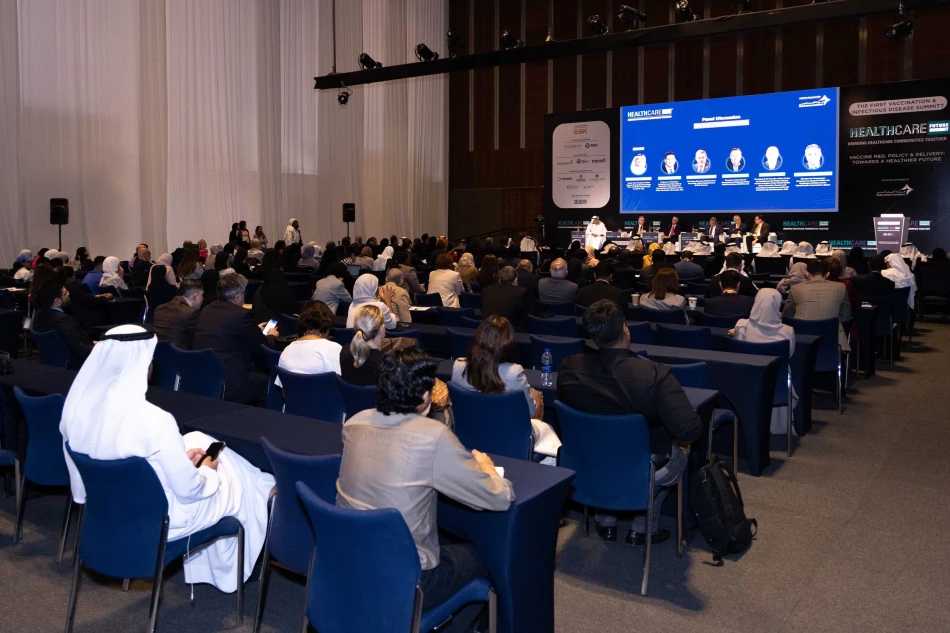
Dubai to Host the 2025 Healthcare Future Summit Backed by Crown Prince Hamdan
Dubai is preparing to host the Healthcare Future Summit 2025 from October 21-23, bringing together over 4,500 healthcare professionals from around the world to discuss cutting-edge medical innovations and the future of global healthcare. The event positions Dubai as a major hub for medical excellence in the Middle East and showcases the UAE's growing influence in shaping international healthcare standards.
Under the patronage of Sheikh Hamdan bin Mohammed bin Rashid Al Maktoum, Crown Prince of Dubai, the summit will take place at the Dubai World Trade Centre alongside two other major medical conferences. This timing creates a comprehensive healthcare ecosystem where family medicine specialists, radiology experts, and healthcare innovators can share knowledge and explore collaborative opportunities.
The summit focuses on several critical healthcare areas that matter globally. Organ donation and transplantation programs will be discussed, along with the latest vaccination strategies and medical tourism trends. Mental and physical health for children gets special attention, with pediatric experts leading specialized sessions on school health programs.
But here's where it gets interesting for the healthcare industry. The event heavily emphasizes artificial intelligence and telemedicine applications in diagnosis and patient care. These technologies are already changing how doctors work, and the discussions will likely influence how quickly these innovations spread across the region.
The summit brings together over 70 leading healthcare brands from more than 20 countries. More than 70 experts and speakers will deliver content across two main tracks, featuring over 20 sessions and 50 lectures. Participants can earn 17.25 hours of continuing medical education credits, which adds real professional value for attendees.
Dr. Abdel Salam Al Madani, Ambassador of the Mediterranean Parliament in the GCC region and CEO of the Healthcare Future Summit, explains the event's significance: "This summit reflects Dubai's growing role as a regional and global center for healthcare innovation. It serves as a central platform for knowledge exchange, enhanced cooperation, and showcasing the latest innovative solutions to address current health challenges."
The UAE's healthcare sector has been expanding rapidly, driven by government investments and a growing medical tourism industry. The country aims to become a global destination for advanced medical treatments, and events like this help build the necessary networks and knowledge base.
Dr. Ramadan Al Blooshi from Dubai Health Authority, who chairs the summit's scientific committee, emphasizes the importance of collaboration between health authorities, medical specialists, and technology innovators. The summit will explore how AI and telemedicine can be integrated into patient care systems more effectively.
Running alongside the healthcare summit, the 10th Annual Radiology Exhibition and Conference marks a significant partnership with the Radiological Society of North America (RSNA). This collaboration brings North American expertise to the Middle East, offering exclusive sessions on computed tomography and emergency clinical imaging.
The radiology event features over 50 brands and 85 international speakers, providing 21 hours of accredited continuing medical education. The program includes 24 sessions across two specialized halls and more than 30 scientific poster presentations.
The third concurrent event, the 12th International Family Medicine Conference and Exhibition, attracts 40 leading pharmaceutical and healthcare brands. Over 45 international speakers will address family doctors and general practitioners over three days, with more than 120 scientific poster presentations.
This family medicine conference covers advanced topics like digestive health, functional and integrative medicine, genetics in family practice, and liver and kidney diseases. Sessions on AI applications for reducing diagnostic burden show how technology is becoming essential in primary care settings.
The economic implications are substantial for Dubai's healthcare sector. These events help establish the emirate as a knowledge hub, potentially attracting more international healthcare companies to set up regional operations. The networking opportunities alone create value for local healthcare providers looking to expand their services or adopt new technologies.
For healthcare professionals in the region, these conferences provide access to international expertise that might otherwise require expensive travel to North America or Europe. The continuing education credits and networking opportunities help advance careers while keeping practitioners current with global standards.
The timing of these three events together creates a comprehensive healthcare ecosystem in Dubai for those three days. Participants can move between different specialties, creating cross-pollination of ideas between family medicine, radiology, and broader healthcare innovation.
All three events are organized by Index Conferences and Exhibitions, with support from Dubai Health Authority. The backing from government health agencies signals official commitment to positioning Dubai as a regional medical education center.
Most Viewed News

 Sara Khaled
Sara Khaled






